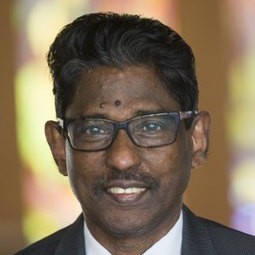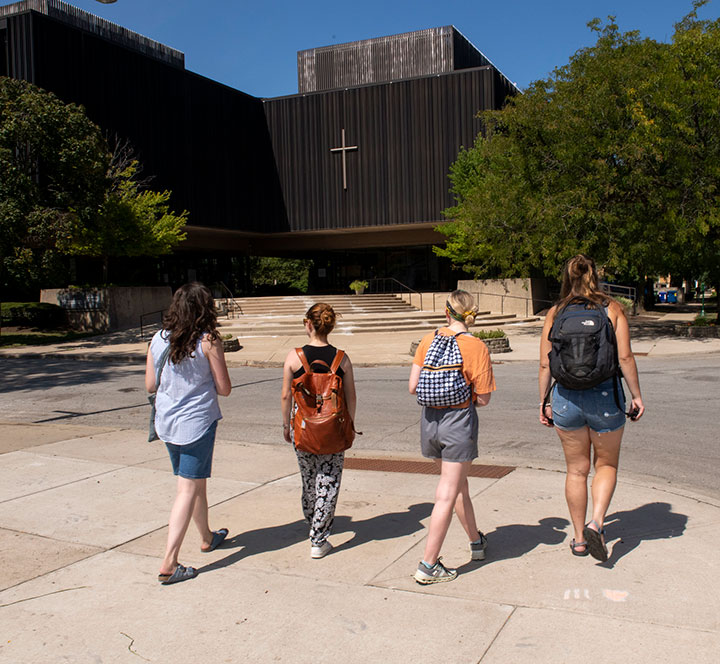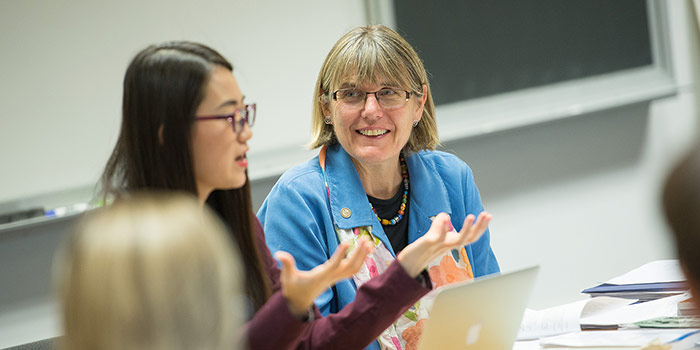Theological Education for Emerging Ministries (TEEM)
TEEM Certificate at LSTC: Synchronous and Asynchronous Pathways
The Theological Education for Emerging Ministries (TEEM) program is an ELCA leadership formation process designed for individuals currently serving in emerging ministry sites who have been identified as candidates by their synod bishop. TEEM students receive a solid grounding in Lutheran theology and the Lutheran Confessions, completing both academic coursework and practical ministry requirements in collaboration with LSTC faculty, synodical staff, and TEEM procedures.
LSTC offers two distinct pathways for completing the TEEM Certificate:
Synchronous TEEM Certificate
For students who prefer a structured, interactive learning environment, LSTC offers a synchronous TEEM Certificate with courses delivered in person or online. This pathway includes:
- Six core courses in theology and ministry
- Workshops on key topics for ministerial leadership
- Clinical Pastoral Education (CPE) for pastoral care formation
- Internship experience in an approved ministry setting
Asynchronous TEEM Certificate via Project Starling
Through Project Starling, LSTC also offers the TEEM Certificate in a fully asynchronous format. This version features the same high-quality content and formation experience, but in a self-paced, flexible structure accessible through our Project Starling platform. Designed for those balancing ministry, family, and other commitments, the asynchronous pathway allows learners to progress at their own pace while still engaging in field education and mentorship.
Both pathways ensure that TEEM students receive rigorous theological education, practical ministry training, and dedicated support, equipping them for faithful service in the ELCA.
LSTC MDiv Program Advantages
Areas of Study Concentration
MDiv, MA and MAM students may seek expertise that goes beyond the core curriculum and allows students to gain confidence and discipline in a designated scholarly area. LSTC’s long-held strengths and commitments in the areas of biblical studies, urban ministry, interfaith studies, religion and science, culture-specific, and environmental ministry have led faculty members to create emphases in these areas. MDiv, MA and MAM candidates may develop an area of concentration in any discipline represented by the LSTC faculty.
From our students

“It’s a hard walk but it’s been a good walk. The benefit will far outweigh the sacrifice. I have a ton of fondness and admiration for the professors who gave up their time so we could go through this program and for the cohort because they, too, were making a similar sacrifice. We were in it together.”
– Sean Ramsey (Current student in Teem program)
From our faculty

“I started theological education almost 40 years ago…When I see someone thriving in their ministry or thriving in their educational career, I think, ‘this is a worthwhile investment.’”
– Peter Vethanayagamony, professor of church history

History of LSTC
The Lutheran School of Theology at Chicago (LSTC) was formed Sept. 4, 1962, when four seminaries consolidated: Augustana Theological Seminary, Grand View Seminary, Chicago Lutheran Theological Seminary and Suomi Theological Seminary. Central Lutheran Theological Seminary joined the merger prior to LSTC dedicating its Hyde Park campus on Oct. 22, 1967. In 1983, 10 members of the faculty of Christ Seminary-Seminex, St. Louis, Mo. (1974), relocated to LSTC and the two schools merged in 1987 just prior to the 1988 formation of the ELCA. LSTC’s prior locations, mergers and history are a reminder that we have always been a seminary that moves and changes, leaning into a future with confidence in its possibilities and promise.


